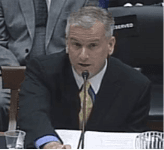FL 1ST DCA: VERIZON APPEALS PROPOSED ASSESSMENT NOT FINAL
On May 12, 2015, there was yet another riveting display of legal arguments in the sales tax arena over a very simple, yet relevant issue: When is a Florida Sales Tax Assessment Final? From a sales tax professional's point of view, it is pure entertainment to watch oral arguments in Verizon Business Purchasing, LLC vs. Florida Department of Revenue, Case # 1D14-3213 (Fla. 1st DCA). Below is a discussion of the history of the case as well as a copy of the court filings to date. Unfortunately, there was a technical problem on the court's side that prevented the hearing from being videotaped. [I keep picturing a 45 second clip with a hand from someone with the DOR coming up to turn the camera off, but I could just be a little cynical?][1] While we wait for the appellate court's ruling, let us bring you up to speed on the issues. But first, hats off to Michael J. Bowen of Akerman Senterfitt LLP, for doing an amazing job defending the rights of taxpayers during the hearing.
At the heart of the issue is whether a Notice of Proposed Assessment is legally considered a FINAL ASSESSMENT for the purposes of the statute of limitations. The state claims they filed a $3.2 million dollar assessment timely. Verizon claims that the state missed making the assessment final until 12 days AFTER the state of limitations date expired. So the question before the court – when does a Notice of Proposed Assessment become final? The day it is issued? Or, as it says on the face of the notice, sixty days after it is issued?
A whole host of things depend on when an assessment is final, so you would think the answer would be well decided long ago given that Florida enacted its sales tax in 1939. For example, the taxpayer may not challenge the state's assessment of sales tax in court until you have a final assessment to challenge. Another example, the state is prevented from initiating collection efforts on assessments until that assessment becomes "final." Florida statutes even provide that a timely filed protest of a proposed assessment causes the assessment to not become final until you have a final decision on the protest. Furthermore, the assessment must become final before the statute of limitations runs out for the assessment to be valid – which is the heart of this case. With this many issues dependent on a "final assessment," then it would seem like this question would have been addressed many years ago, right?
If the state was being forthright – the Florida Department of Revenue would admit that even the DOR long ago knew exactly when a tax assessment became final. For decades, the Florida Department of Revenue knew that the Notice of Proposed Assessment (NOPA) did not become a final assessment until 60 days after the NOPA was issued. This was so prevalently known by everyone in the FL DOR that it was even provided in the auditor's training manuals. Yes – the DOR auditor's manual literally said that the audit had to be finished so that the NOPA could be issued at least 60 days prior to the running of the statute of limitations because assessment did not become final for 60 days. In other words – literally everyone in the FL DOR knew that the NOPA was not final until 60 days after the issuance of the NOPA.
However, during the early 1990's, a group of businesses got together to vehemently complain about the over aggressive tactics of the Florida Department of Revenue. A Taxpayer Bill of Rights was created and enacted into law (thanks in part to Dominic Calabro, now President & CEO of Florida TaxWatch) to help protect taxpayers/businesses. One of those protections was to provide taxpayers the right to at least a 60 day delay in the start of a sales and use tax audit. However, this delay upset the FL DOR's audit time tables because now the auditors had 60 less days to complete the audit. To overcome this loss of 60 days at the beginning of the audit, it was decided that the auditors would take back the last 60 days at the end of the audit by not worrying about issuing the NOPA more than 60 days before the expiration of the statute of limitations.
I personally have been told by someone involved that a specific person in the DOR general counsel's office gave the instructions to remove from the auditor's training manual the requirement to have the audit finished in time to issue the NOPA at least 60 days prior to the statute of limitations. This one simple change along with the passage of time resulted in almost everyone in our state tax department to forget that the NOPA is NOT A FINAL ASSESSMENT. The problem with this is that the NOPA, which does not become final for 60 days after its issuance, would cause the FL DOR to miss the statute of limitations date for issuing a final assessment.
So – what is the big deal you ask? For a typical audit, honestly, an audit assessment becoming final 30 to 50 days late would not be that big of a deal. The statute of limitations in Florida is 3 years from the date of the return or the date of the payment, whichever occurs later. Therefore, the typical Florida sales and use tax audit goes back three years. The issuance of an audit assessment legally tolls the statute of limitations for 12 months from the date of the notice. So, by law, the FL DOR has 12 months from the date of the audit notice to issue a final assessment. In a typical audit, if the assessment became final 30 days late, then the state would legally lose 30 days of the 3 year audit period. Embarrassing yes, but the taxpayer would still be on the hook for most of the tax assessment resulting from the audit. If, however, the taxpayer signed a statute of limitations extension, then the whole game changes.
You see, when a taxpayer and the FL DOR cannot finish and audit within 12 months, then the taxpayer (not the DOR) can request to extend the statute of limitation period during an audit. For example, let's say the audit is extended 12 months, then audit and taxpayer each have an additional 12 months to produce and review the records to arrive at the right audit result. However, this results in the 1st 12 months of the audit period being pushed together into a single expiration date. If the taxpayer and the FL DOR extend the statute of limitations several times during the audit so that all 36 months of the audit fall into a single date – then whether the sales and use tax audit final assessment is issued timely can be extremely important. If the FL DOR's assessment becomes final even 1 day after the final statute of limitations date in a situation like this, then the DOR's assessment simply does not exist.
At first, this seems like a windfall for Taxpayers. But remember, the statute of limitations cuts in both directions. If the Taxpayer overpays tax, then the taxpayer is required by law to file the refund claim within 3 years of the statute of limitations. Miss that statute of limitations date by even one day, and the Florida Department of Revenue will not hesitate for a second to deny your refund. So the fact that the state is also subject to the same limitation is merely the other side of the same law applying equally to both the State and the Taxpayer.
I have to admit that our firm has a substantial stake in the outcome of this case. As a law firm whose primary practice area is Florida sales and use tax controversy. We have over a dozen of cases with a late filed Notice of Proposed Assessment sitting in wait until this case is decided. I will also tell you that the FL DOR has revamped their audit techniques since the Verizon case surfaced in an attempt to make sure the NOPA is issued at least 60 days prior to the running of the statute of limitations. Nice to see at least someone in the FL DOR is being honest about what the law says. Looks like we will have to let a panel of appellate judges tell the rest of the DOR that the NOPA does not become final until 60 days after issuance.
About the author: Mr. Sutton is a Florida licensed CPA and Attorney and a shareholder in the law firm the Law Offices of Moffa, Sutton, & Donnini, P.A. Mr. Sutton's primary practice is Florida tax controversy, with an almost exclusive focus on Florida sales and use tax. Mr. Sutton worked for in the State and Local Tax department of one of the Big Five accounting firms for a number of years and has been an adjunct professor of law at Stetson University College of Law since 2002 teaching State and Local Tax and at Boston University College of Law since 2014 teaching Sales and Use Tax. Mr. Sutton is a frequent speaker on Florida sales and use taxes for the FICPA, Lorman Education, NBI, AAA-CPA, and the Florida Society of Accountants. Mr. Sutton is also co-author of CCH's Sales and Use Tax Treatise. You can contact Mr. Sutton at 813-775-2131 or JamesSutton@FloridaSalesTax.com or his firm bio.
AUTHORITY
VERIZON BUSINESS PURCHASING LLC v FL DEPARTMENT OF REVENUE, 1ST DCA, Case # 1D14-3213
INITIAL BRIEF, Filed Oct. 24, 2014
ANSWER BRIEF, Filed Dec. 18, 2014
REPLY BRIEF, Filed Feb. 2, 2015
Order for Appellate – pending…
VERIZON BUSINESS PURCHASING LLC v FL DEPARTMENT OF REVENUE, Fla. 2nd Cir., Case # 2011 CA 1498, Order denying plaintiff's motion for summary judgment and granting defendant's motion for summary judgment, decided June 1, 2012 (appealed on Nov. 15, 2012).
ADDITIONAL RESOURCES
FL TAX LITIGATION ALERT – VERIZON – FL DOR MISSES SOL WITH PROPOSED ASSESSMENT, published February 17, 2012, by James Sutton, CPA, Esq.
FL TAX LITIGATION ALERT – NOPA – VERIZON VS FL DOR – STATE WINS AT TRIAL, published June 7, 2012, by James Sutton, CPA, Esq.
WHEN SALES TAX AUDITORS MAY NOT PICK AND CHOOSE RECORDS TO USE, published April 19, 2015, by Joseph C Moffa, CPA, Esq.
FL TAX AUDITS – TAXPAYER BILL OF RIGHTS PROTECTS NO RIGHTS, published May 5, 2015, by Matthew Parker, Esq.
FL DBPT ABT LOSES BLUNT WRAPS TAXABILITY CASE, published March 15, 2015, by Jerry Donnini, Esq.
FLORIDA HOMESTEAD TAX EXEMPTION CASE – MARY JANE, published March 15, 2015, by Amanda Levine, Esq.
FL DOR SMELLING THE WRONG KIND OF FLOWERS, published November 19, 2014, by Jerry Donnini, Esq.
[1] As strange as it is for the court to not record oral arguments, there was one other hearing that had the same problem. As luck (or fate) would have it, it was also a Florida Department of Revenue case! Still think I'm cynical?


